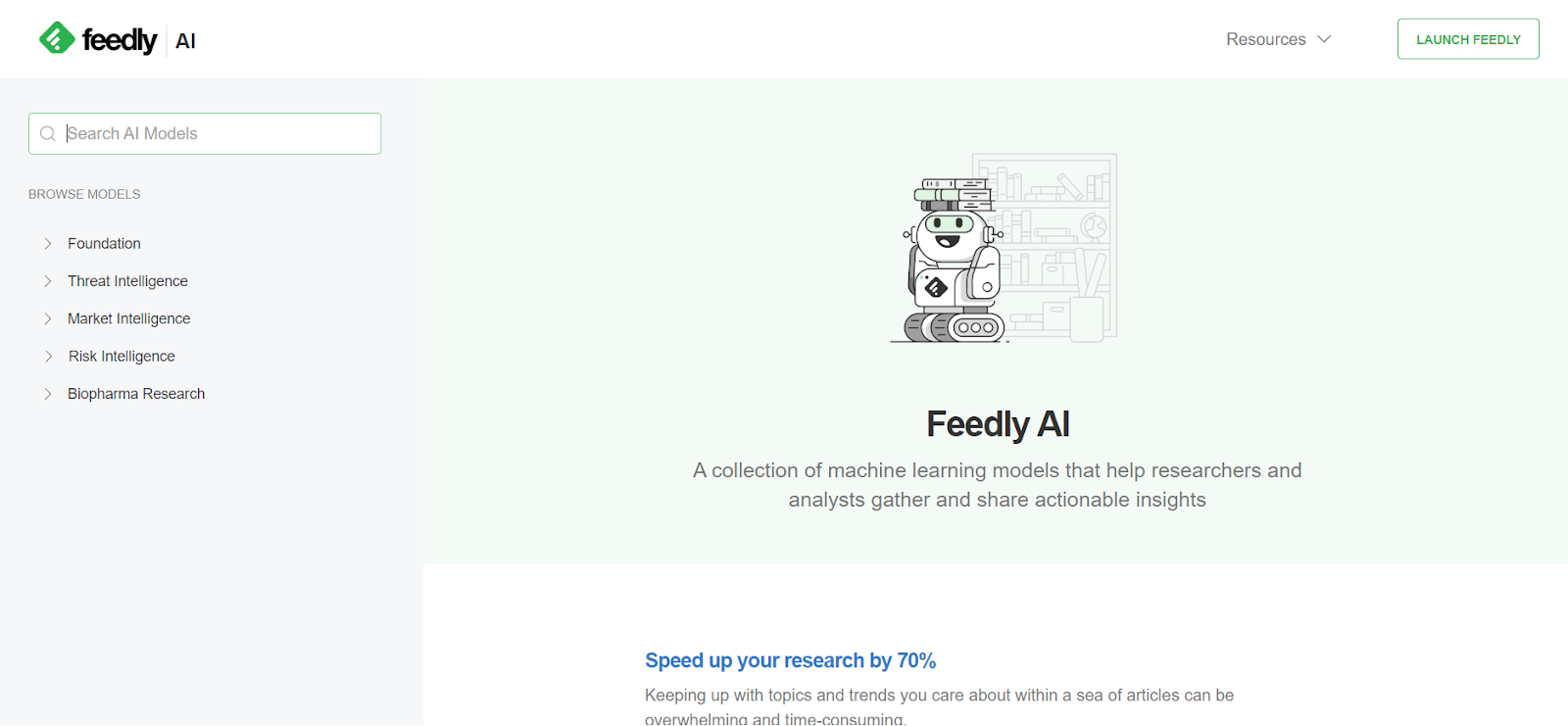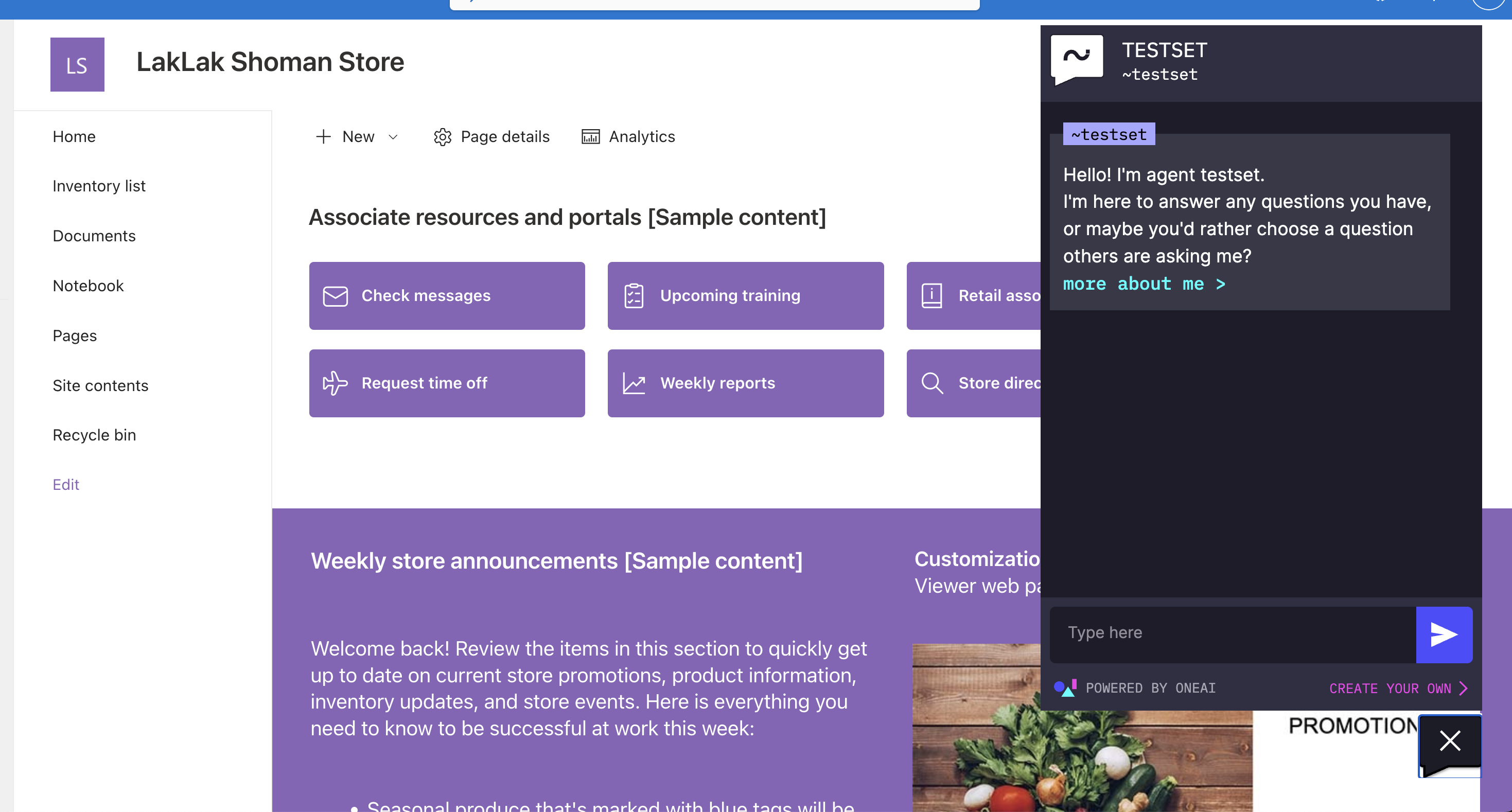
GPT Your News: Top 6 AI Agents for Smart News Experiences
Introduction
The sheer volume and complexity of today's media landscape can be overwhelming, making it challenging to stay informed. However, amidst this sea of information, AI Agents are emerging as powerful tools for individuals seeking comprehensive and personalized news coverage. These advanced programs go beyond simply aggregating content; they actively tailor news feeds to individual preferences, revolutionizing how we consume media. This shift is not only influencing what we read but also reshaping the dissemination of information across the journalistic landscape. As we explore the rise of AI/GPT Agents, we'll delve into their origins, examine their impact on journalism, and discover how they are defining a new era of news consumption. This transformation extends beyond simply staying informed; it redefines what it means to be well-informed in the age of AI.
{{cta}}
The Inner Workings of the AI Newsagents
AI-powered newsagents are revolutionizing the way we consume news. By using artificial intelligence to curate and personalize news feeds, AI newsagents can provide users with a more relevant and engaging news experience.
AI newsagents use a variety of AI techniques to curate and personalize news feeds. These techniques include:
- Natural language processing (NLP): NLP is used to understand the content of news articles. This includes identifying the main topics, keywords, and entities in an article.
- Machine learning (ML): ML is used to learn from data and make predictions. In the context of AI newsagents, ML is used to predict which articles are most likely to be relevant to a particular user.
- Recommendation algorithms: Recommendation algorithms are used to suggest articles to users based on their past reading history and interests.
Imagine a vast news network as a giant tapestry of stories. AI Agents weave through it, selecting threads based on the patterns you've shown an affinity for. They pull together strands from different sections—international headlines, local events, niche topics—creating a personalized narrative. As you interact more, the AI's weaving skills become more refined, transforming a vast news network into a personalized narrative, precisely crafted for your interests.
And as they work behind the scenes, these Agents are ever-evolving. With each click, each read, each skipped story, the ML algorithms adjust, learning and recalibrating, ensuring that your news feed becomes more attuned to your preferences. It's a dynamic dance between user and technology, with AI Agents leading the steps towards a more informed, more personal news experience.
<< Download the OneAgent WordPress Plugin >>
A Rundown of Today's Top AI Agents for News
NewsGPT

NewsGPT is an AI-powered news channel that was launched in March 2023. It is the first news channel to be generated entirely by artificial intelligence. NewsGPT uses a combination of natural language processing (NLP) and machine learning (ML) to scan news sources from around the world in real-time. It then uses this data to curate news reports that are claimed to be up-to-date and unbiased.
Key features:
- AI-generated content
- Real-time updates
- Unbiased reporting
- Automated Fact-Checking
- Multilingual News Support
- 24/7 coverage
Google News AI

Google News AI is an advanced news aggregation service that employs artificial intelligence to curate and personalize news content. It analyzes vast amounts of data to tailor news feeds to individual user preferences, ensuring relevant and timely information delivery. This AI-driven approach makes it a dynamic and efficient tool for staying informed, offering a unique, user-centric experience that adapts to changing interests and global news trends, making it a cool, modern way to consume news.
Key features:
- Personalization
- Broad Spectrum of Sources
- Real-Time Updates
- Smart Categorization
- Filtering and Ranking
- Adaptability
Apple News AI

Apple News, embedded in Apple's ecosystem, uses AI and machine learning to offer a personalized news experience. It curates content from various sources, aligning with user preferences shaped by their interactions with the app. Combining AI with human editorial insights ensures a diverse selection of news. Key features include its focus on privacy, with personalization occurring on the device, and integration with Siri for voice-activated news engagement, making Apple News a distinctive choice in AI-driven news platforms.
Key Features:
- Personalized Content Feeds
- AI and Human Curated Stories
- Recommendation Engine
- Personalized Notifications and Alerts
- Privacy-Centric Design
- Siri Integration
- Wide Range of News Sources
- Topical and Thematic Categories
- User Interaction Learning
Feedly

Feedly AI, powered by its AI assistant Leo, is an advanced news aggregator that uses artificial intelligence for personalized news curation. By leveraging AI algorithms and Leo's insights, it prioritizes and recommends content based on individual user interests. Leo learns from user interactions to identify preferred topics and sources, ensuring the news feed is highly tailored and relevant, making content discovery more efficient and aligned with each user's unique preferences.
Key features:
- Personalized Content Curation
- Content Summarization
- Topic Identification and Recommendation
- Personalized Content Discovery
- User Behavior Analysis
- Collaborative Features

Flipboard is a versatile news aggregation and social network aggregation platform, renowned for its magazine-style interface. It employs AI to personalize content discovery, ensuring users receive news and stories aligned with their interests. The platform curates content from diverse sources, offering a visually engaging and customizable reading experience.
Key Features:
- Personalized Content Feeds
- AI-Driven Curation
- Custom Magazines
- Topic-Based Streams
- Social Media Integration
- Intuitive User Interface
- Cross-Platform Availability
- Trend Analysis and Alerts
OneAgent

OneAgent by OneAI offers a revolutionary way to interact with news content, ideal for both news outlet owners and news enthusiasts. For owners of news outlets, OneAgent provides the tools to create a GPT-powered newsagent, enhancing the way your audience engages with content. This allows users to interact directly and conversationally with news articles, asking questions and receiving immediate, digestible information. News addicts can also benefit by creating their own personalized newsagent, selecting and tailoring content based on trusted sources and personal interests. The platform's capabilities, including article summarization, sentiment analysis, and efficient content analysis, make OneAgent a versatile and valuable tool, enriching the news consumption experience for both consumers and professionals in the field.
Key Features:
- Interactive Engagement with News Content
- Immediate Information Retrieval by Request
- Automated News Summarization
- Sentiment Analysis of Articles
- Efficient Content Analysis
- Multilingual Support
- Integration with Newsroom Workflows
- Audience Behavior Insights
- Conversational Experience with Articles
- Enhanced User Engagement
- Fact-Checking and Verification
The Impact of AI Agents on Journalism
AI agents have significantly influenced various aspects of journalism, from content creation to reader engagement:
Enhanced News Gathering and Reporting: AI agents expedite the process of news gathering by analyzing large datasets, social media trends, and public records, uncovering newsworthy insights. They also assist in drafting initial reports, particularly for data-intensive stories, allowing journalists to focus on deeper analysis.
Personalized Reader Experiences: AI-driven personalization allows news platforms to tailor content to individual user interests, enabling each user to explore topics as deeply or as broadly as they wish. This customization not only enhances reader engagement by providing a more relevant and satisfying reading experience but also creates opportunities for targeted advertising. Such targeted approaches benefit both publishers and advertisers by aligning content and ads with the specific interests and behaviors of users.
Data-Driven Editorial Decisions: AI provides valuable insights into reader behaviors and preferences, guiding editors in content prioritization. This approach helps in aligning editorial decisions with audience interests, though it also poses questions about balancing reader appeal with journalistic principles.
Automating Routine Journalism Tasks: Routine tasks such as financial, sports, or weather reporting are increasingly automated by AI. This shift allows journalists to allocate more time to complex, investigative stories, but it also brings up concerns regarding job security in the industry.
Aiding Investigative Journalism: AI's ability to process and analyze extensive datasets enhances investigative journalism. It can identify patterns and connections in data, revealing stories that might otherwise remain hidden, thereby expanding the scope and depth of investigative reporting.
Challenges in Ethical Reporting and Bias: The integration of AI in journalism introduces challenges around ethical reporting and potential biases in AI algorithms. Ensuring that AI-driven content maintains journalistic integrity and addresses inherent biases is crucial.
The integration of AI agents in journalism represents a pivotal shift, offering both opportunities for enhanced reporting and personalization, and challenges in terms of ethics, bias, and the role of journalists. This evolution underscores the need for a synergistic approach, combining AI's analytical prowess with the critical, empathetic judgment of human journalists.
Ethical Considerations and Bias in AI Journalism
The integration of AI Agents into the field of journalism presents a myriad of ethical considerations and concerns about bias, which must be carefully addressed to maintain the integrity and trustworthiness of the news industry. These concerns can be broadly categorized into the following areas:
Algorithmic Transparency and Fairness
The opaque nature of AI algorithms can lead to a lack of transparency in how news content is curated and prioritized. Without a clear understanding of the criteria used, there is a risk that algorithmic decision-making processes will influence what news gets presented to the public, potentially favoring certain perspectives or suppressing others. To address this concern, news organizations should strive for transparency in their AI usage, providing clear explanations of the algorithms employed and the factors that influence content selection.
Data Bias and Diversity
AI systems are only as unbiased as the data they are trained on. If the training data is skewed or lacks diversity, the AI could inadvertently promote content that is biased, perpetuating stereotypes or underrepresenting certain groups or viewpoints. To mitigate this risk, news organizations should carefully curate their AI training data, ensuring that it is comprehensive, representative, and free from inherent biases.
Editorial Independence and Sensationalism
Over-reliance on AI for content selection can impact editorial independence. There is a concern that prioritizing content based on engagement metrics, as determined by AI, might lead to sensationalism or neglect of important but less popular topics. To maintain editorial integrity, news organizations should establish clear guidelines for human oversight and intervention in AI-driven content selection processes.
Misinformation and Deepfakes
AI can be a powerful tool for generating convincing but false content, including deepfakes. Ensuring that AI is effectively used to identify and filter out misinformation is essential, but also challenging, given the sophistication of AI-generated fake content. To combat misinformation, news organizations should invest in robust fact-checking mechanisms and educate audiences about the potential for AI-generated manipulation.
Impact on Employment and Ethical Data Usage
The automation of certain journalism tasks by AI raises ethical questions about the displacement of human jobs. Balancing the efficiency gains from AI with the potential impact on employment in the journalism sector is a critical consideration. To address this concern, news organizations should adopt responsible AI implementation strategies that minimize job losses and provide opportunities for retraining and upskilling of existing employees.
In addition to these specific concerns, AI usage in journalism also raises broader ethical questions about data privacy and accountability. News organizations must ensure that user data is collected, stored, and used in a transparent and ethical manner, adhering to data privacy regulations and obtaining informed consent from users. Additionally, clear guidelines and mechanisms for accountability should be established to address potential errors or biases in AI-generated content.
Addressing these ethical considerations and potential biases is essential for leveraging AI in journalism responsibly. It involves a multi-pronged approach that encompasses algorithmic transparency, continuous monitoring for bias, adherence to journalistic principles, a commitment to ethical data usage and privacy standards, and responsible AI implementation strategies that minimize job losses and promote human-AI collaboration. By carefully navigating the ethical landscape of AI-driven journalism, news organizations can foster trust, maintain integrity, and harness the power of AI to enhance the quality and accessibility of news for the public.
Conclusion
The integration of AI in journalism is ushering in a transformative era, marked by enhanced content personalization, efficient news gathering, and deeper investigative capabilities. However, this technological advancement brings with it critical ethical considerations. The industry must balance AI's benefits with the need for editorial integrity, ensuring diversity and countering algorithmic biases. Training journalists to synergize with AI is essential, as is adapting to innovative business models influenced by this technology. Ultimately, the successful fusion of AI with human expertise will define the future of journalism, ensuring it remains a pillar of informed, ethical, and dynamic storytelling.













